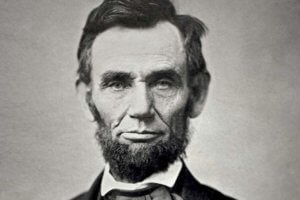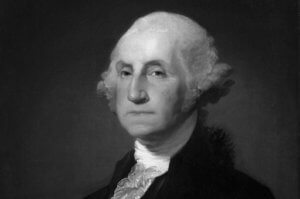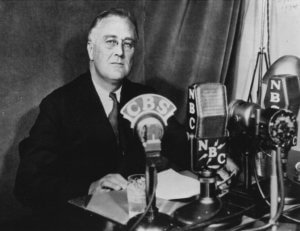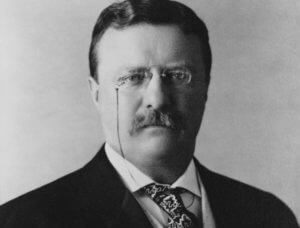Sign up for Funding Circle newsletter!
Get our latest news and information on business finance, management and growth.
Updated: March 27th, 2020

Running the country is a lot like running a (very large) business. There are projects to manage, budget constraints, people to lead … and there never seems to be enough time to get everything done.
In honor of President’s Day, we’re exploring what made our most inspiring presidents stand out, and what they can teach business owners looking to succeed in their own right.

While Abe Lincoln is widely regarded as the greatest president in American history, it wasn’t because he was handed everything on a silver platter. Rather, pretty much everything Lincoln knew can be credited to his unquenchable thirst for knowledge. Always seen with a book, he taught himself grammar, geometry, trigonometry, and law, once telling a student, “Always bear in mind that your own resolution to succeed is more important than any one thing.”
As a business owner, it’s equally important to never stop learning. You may feel strapped for time, well, all the time, but you can’t continue to grow your business if you don’t grow yourself. And with so many free resources out there, there’s no longer any excuse. If books aren’t your thing, try podcasts, TED talks, articles, or even Netflix (… within reason, of course). The key is to keep your mind active, consider differing opinions, and get inspired by others.

Our first president was special for many reasons, but one of the characteristics that made George Washington stand out was his humility. Even though he was an army general, he was always willing to listen to other people’s opinions and ideas. During the Revolutionary War, this proved invaluable, as following his war council’s advice helped him avoid some costly mistakes.
As a business owner, take Washington’s cue and surround yourself with experts in their various fields — and then let them do their job. Of course, you can’t be a good leader without giving feedback, but on the whole your focus should be on growing the company … not micromanaging your team and trying to do their jobs for them.

“It is common sense to take a method and try it. If it fails, admit it frankly and try another. But above all, try something.” -Franklin D. Roosevelt
It’s no secret that FDR was frustrated by how the Hoover administration was dealing with The Great Depression. When he became president, he was quick to institute a number of experimental projects and programs — collectively known as the New Deal — aimed at spurring the economy. While not all of his ideas worked, in the end, millions of people were given work (and therefore paychecks), and numerous schools, roads, and hospitals were built.
Many of the most successful companies today share the same mindset as FDR. James Quincey, the CEO of Coca-Cola, once said, “If we’re not making mistakes, we’re not trying hard enough.” Similarly, Reed Hastings, CEO of Netflix, told conference attendees that if Netflix wasn’t canceling a ton of new shows, they weren’t taking enough risks.
It’s scary to take risks, but time and time again, great leaders have proven that with high risk comes high reward. If you really want your business to thrive, keep innovating.

Teddy Roosevelt is largely credited as the “first modern president,” meaning he shaped today’s office by making the president — not Congress — the center of American politics. He believed that the president could (and should) use any power not specifically denied by the Constitution, and used those powers to enact a number of changes, most notably in the wildlife conservation area.
As a business owner, you likely already share this quality with Roosevelt. It was your dissatisfaction with the status quo and relentless drive to create something better that led you to create your business, and it’s this made to do more mindset that’ll continue to drive your success. Keep striving for more, and let us help you change the world.

While Roosevelt demonstrated how important it is to take action, Eisenhower’s presidency can teach business owners about not rushing into decisions.
Critics of Eisenhower are quick to call him a “do-nothing President,” but sometimes that’s the best decision you can make. Eisenhower’s number one accomplishment as president was keeping America at peace, which was no small feet as Cold War tensions were high. While everyone around him advised dropping the bomb, he dealt with every crisis calmly, and always found a way to deal with the situation without leading America into war.
As a small business owner, one of the most important lessons you can learn is not automatically saying yes to everything. If something doesn’t feel right, you may want to trust your gut and avoid taking action — or table it for later.
Jim Malone, founder of CounterEv (one of the businesses Funding Circle is proud to support), once had the opportunity to sell his wood products at a discounted rate, which would help him unload a bunch of inventory and make some fast cash. However, he had a vision for his company and understood the value of what he was doing, so he stuck to his guns and decided to keep the price point he felt he deserved. Now, he has two showrooms in New York and has furnished dozens of Shake Shacks. Had he not trusted his gut and held firm to his vision, he might not have been as successful today.
Paige Smith is a content marketing writer who specializes in writing about the intersection of business, finance, and tech. Paige regularly writes for a number of B2B industry leaders, including fintech companies, small business lenders, and business credit resource sites.

